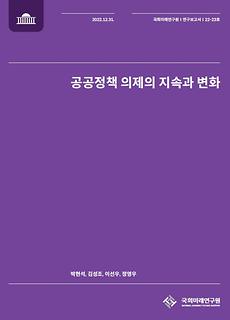
Our aim is to conduct an analysis of the legislative process surrounding major public policies in order to discern the factors that impact the evolution and continuity of public policy agendas. Two dominant approaches have been used to characterize Korean politics: the imperial presidency and political grid lock under a divided government. According to these approaches, legislative agendas are driven either by a powerful president or by conflicts between the president and the majority party in a divided government, both of which assu me a high degree of party discipline and unity. However, counter examples reveal that a president may fail to implement their agenda due to cleavages within the governing party that holds a majority in the legislature.
Through examination of three case studies on public policy agendas -(1) news media legislation, (2) economic democracy, and (3)increasing admission quotas at medical schools to strengthen public health in provinces - we have determined that major parties are more likely to be divided when facing opposition from stake-holders of the policy agendas. Additionally, powerful business groups have been unable to prevent legislative changes to corporate governance structure when internally divided and not represented by the conservative party. These case studies indicate that the bargaining process within the legislature plays a significant role in the formation of public policies, differing from the claims of an imperial presidency.
In order to ensure that a variety of interests are represented in the legislative process, stake-holders must be able to access the aggregation and mediation process of conflicting interests within political parties.